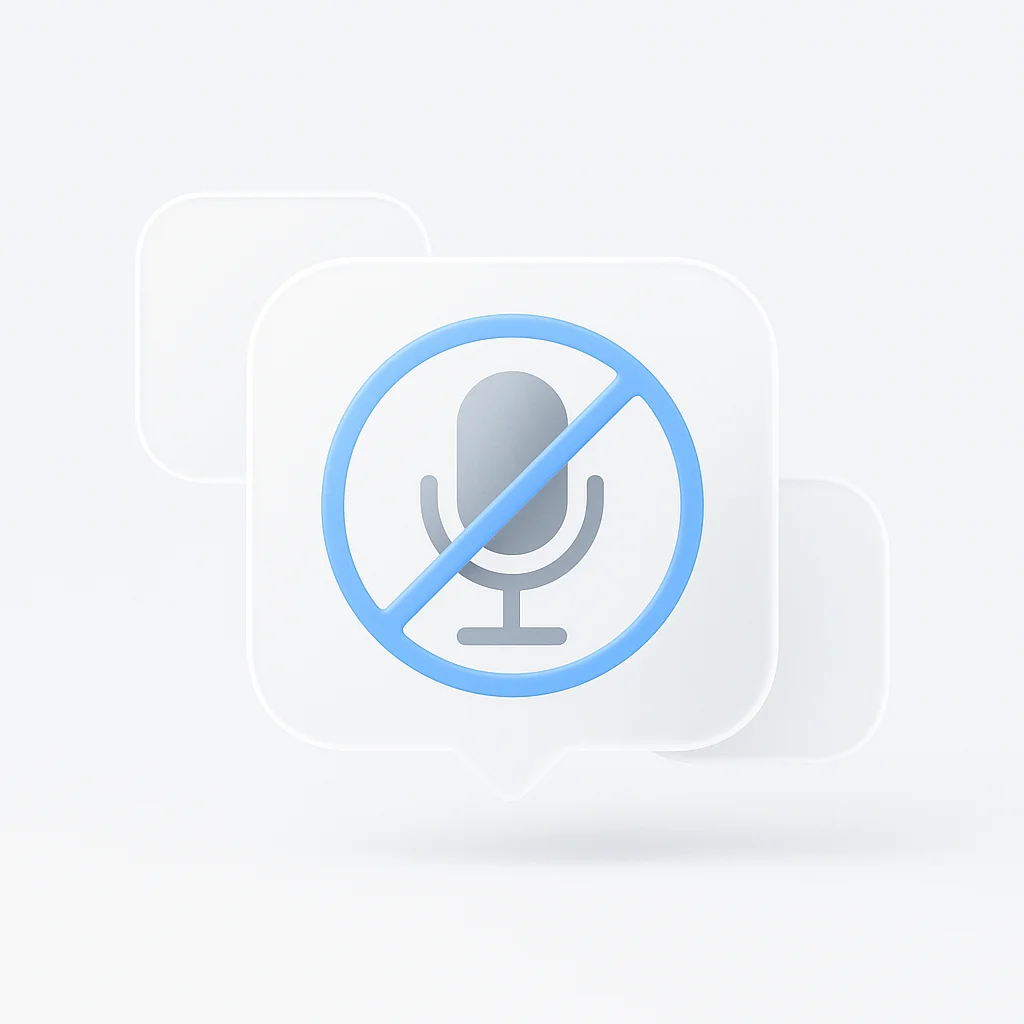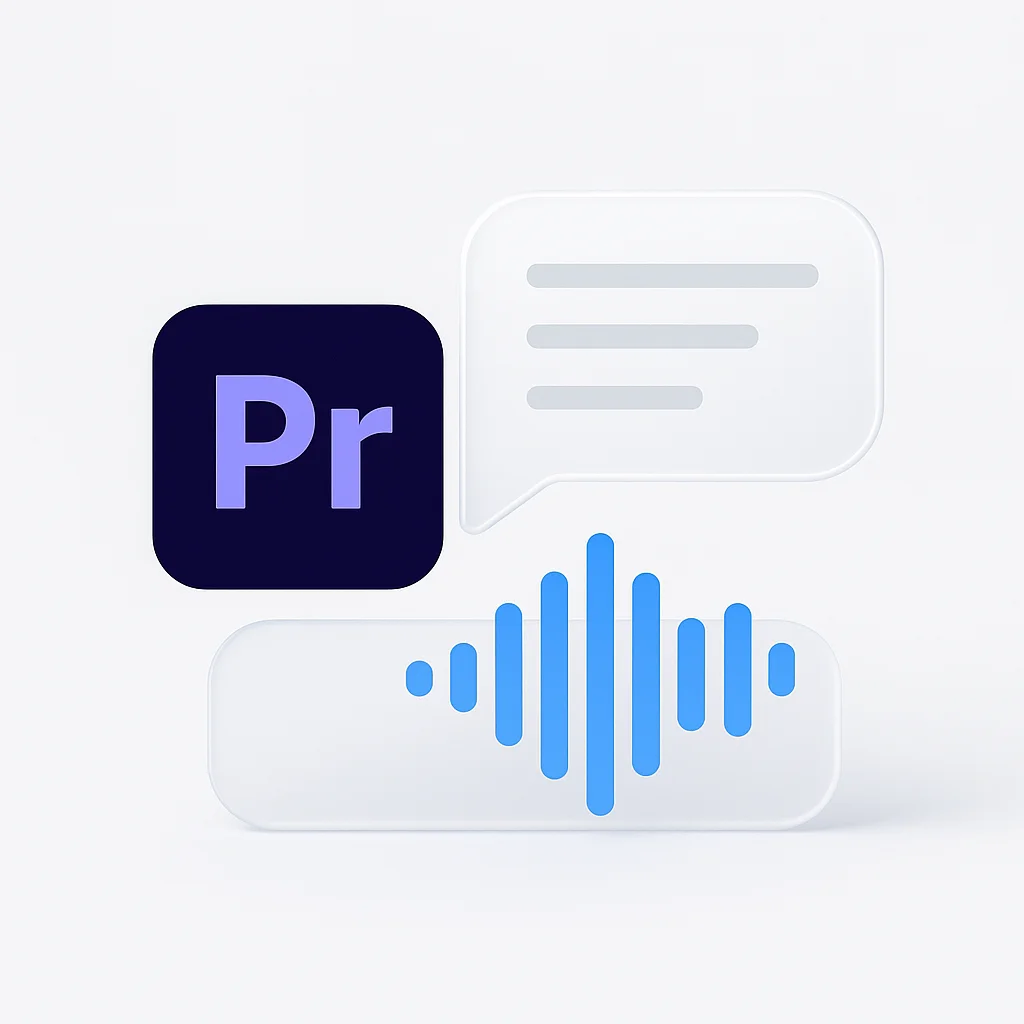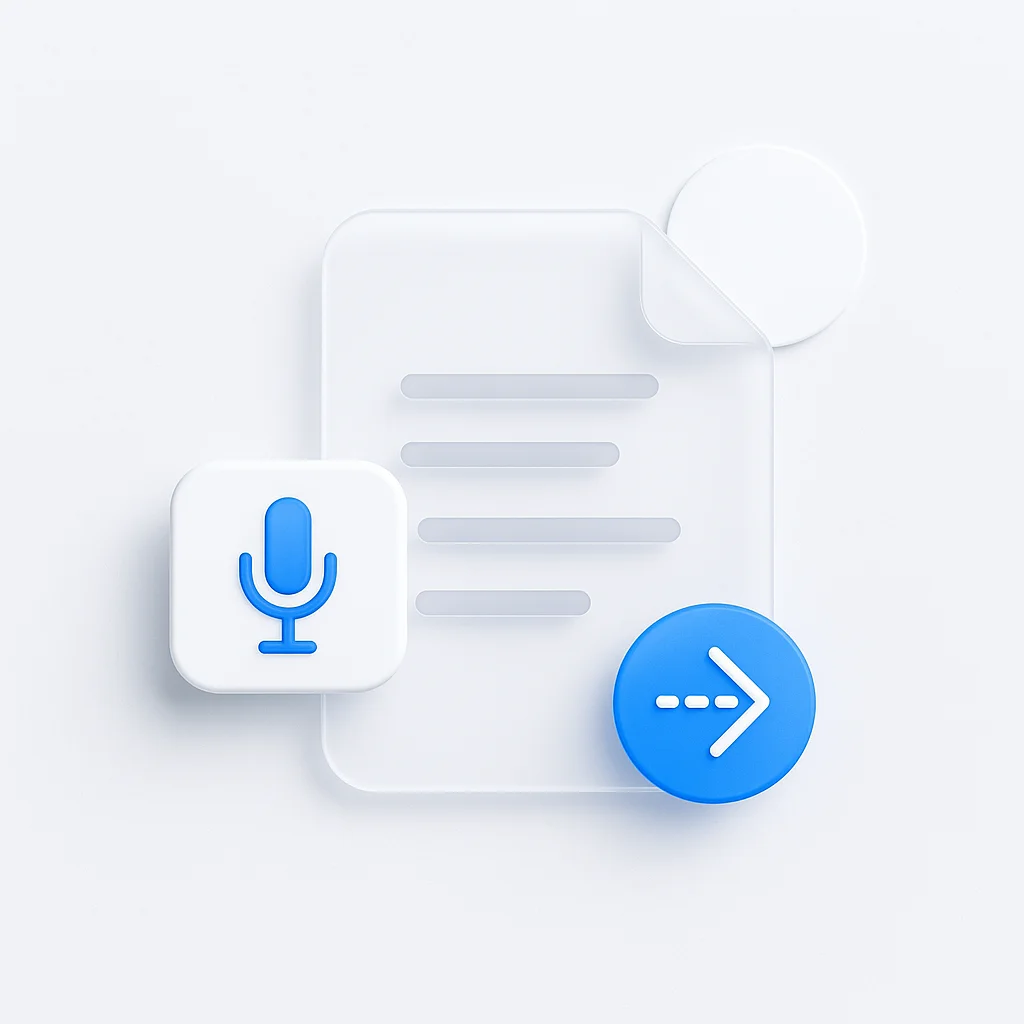In a world where smartphones capture every moment and hidden cameras seem everywhere, do you know your rights when it comes to being recorded? The answer is more complex than you think, and getting it wrong can have serious legal consequences.
This is your definitive guide to understanding the laws around recording conversations and videos without consent. We’ll demystify the critical concepts of one-party and two-party consent, explain your rights when being recorded at work, in public, or in your home, and outline the steps you can take if you believe you have been recorded illegally.
Understanding the Legal Foundation: Consent and Privacy
Before diving into specific scenarios, it’s crucial to understand the core legal principles that govern recording laws in the United States.
The “Reasonable Expectation of Privacy”
The law protects you most where you have a right to believe your conversation is private. This legal standard determines whether recording without consent is permissible:
- High expectation of privacy: Your home, private offices, changing rooms, hotel rooms
- Low expectation of privacy: Crowded public parks, busy restaurants, public streets
- Moderate expectation: Semi-private spaces like office cubicles or quiet corners of public venues
One-Party vs. Two-Party Consent: The Most Important Rule
This distinction is the foundation of all recording laws in the United States:
One-Party Consent: In these states, you can legally record a conversation if you are part of it and consent to the recording. You don’t need to inform the other participants.
Two-Party (or All-Party) Consent: In these states, everyone in the conversation must consent to be recorded. This is the strictest standard and requires explicit permission from all parties.
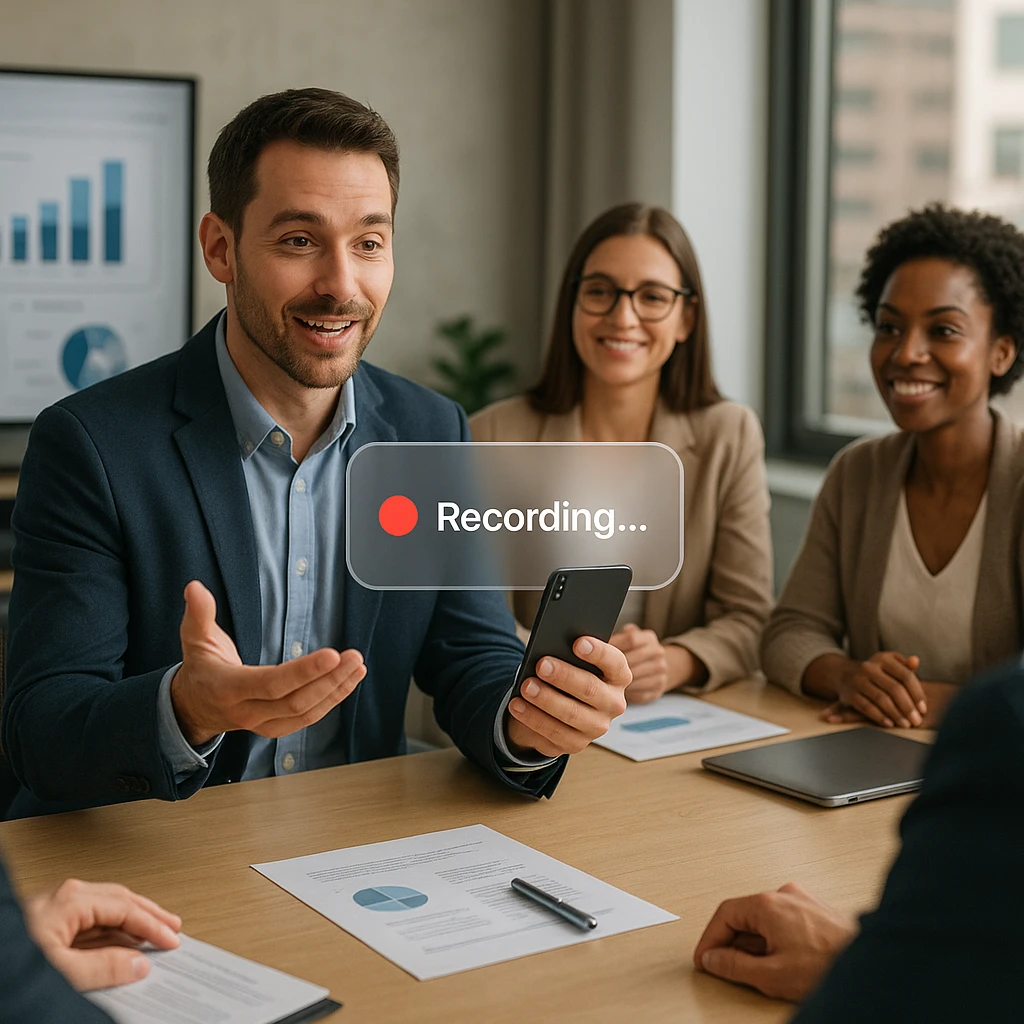
US Recording Laws by State: Your Quick Reference Guide
Understanding whether your state requires one-party or two-party consent is essential for staying legally compliant.
Two-Party (All-Party) Consent States
These states require all parties to consent to recording:
- California
- Connecticut
- Delaware
- Florida
- Illinois
- Maryland
- Massachusetts
- Michigan
- Montana
- New Hampshire
- Pennsylvania
- Washington
What it means: You MUST inform all parties you are recording, and they must agree to it.
One-Party Consent States
All other states (38 states plus D.C.) follow the one-party consent rule:
- New York, Texas, Arizona, Georgia, New Jersey, Ohio, and 32 others
What it means: You can legally record if you are part of the conversation, even without telling others.
The Golden Rule for Staying Legally Safe
Regardless of your location, the safest practice is to always announce that you are recording. A simple “Just to let you know, I’m recording this call” provides legal protection and maintains trust.
Real-World Scenarios: Your Rights in Different Situations
Let’s examine specific situations where recording questions commonly arise.
Can Someone Record You in Public?
Generally, yes. In public spaces, you have a diminished expectation of privacy. The Supreme Court has ruled that filming in public is generally protected, as people cannot reasonably expect privacy when visible to the public.
However, consider these factors:
- Intent matters: Recording for security vs. harassment purposes
- Audio vs. video: Some states have stricter rules for audio recording
- Commercial use: Different rules may apply for commercial filming
What About in Your Home or on Private Property?
Recording in someone’s home without permission is generally illegal due to the high expectation of privacy. This applies even in one-party consent states.
Private property rules:
- Property owner sets rules: Businesses can record with proper notice
- Residential spaces: Strong privacy protections
- Workplace considerations: Employer policies and state laws both apply
Is It Illegal to Record Someone at Work?
Workplace recording involves complex considerations:
Factors to consider:
- Employer policies: Company handbook rules
- State consent laws: Still apply in workplace settings
- Recording management vs. coworkers: Different legal implications
- Privacy areas: Bathrooms, break rooms, private offices
Best practice: Check your employee handbook and consult HR before recording any workplace interactions.
Recording Phone Calls and Video Chats
The same one-party vs. two-party consent laws apply to:
- Traditional phone calls
- Video conference calls
- Virtual meetings on Zoom, Teams, Google Meet
- VoIP calls and messaging apps
Many platforms like ScreenApp’s meeting recorder provide automatic consent notifications to ensure legal compliance.
What to Do If You’ve Been Recorded Without Your Consent
If you discover you’ve been recorded without permission, here’s your step-by-step action plan:
1. Stay Calm and Document Everything
- Don’t confront angrily: This could escalate the situation
- Write down details: Date, time, location, circumstances
- Gather evidence: Screenshots, witness statements, any proof of the recording
- Save communications: Any messages or emails related to the incident
2. Determine Legal Violations
- Check your state’s consent laws: Was the recording legal in your jurisdiction?
- Assess expectation of privacy: Were you in a private or public setting?
- Review context: Was this workplace harassment, neighbor disputes, or other circumstances?
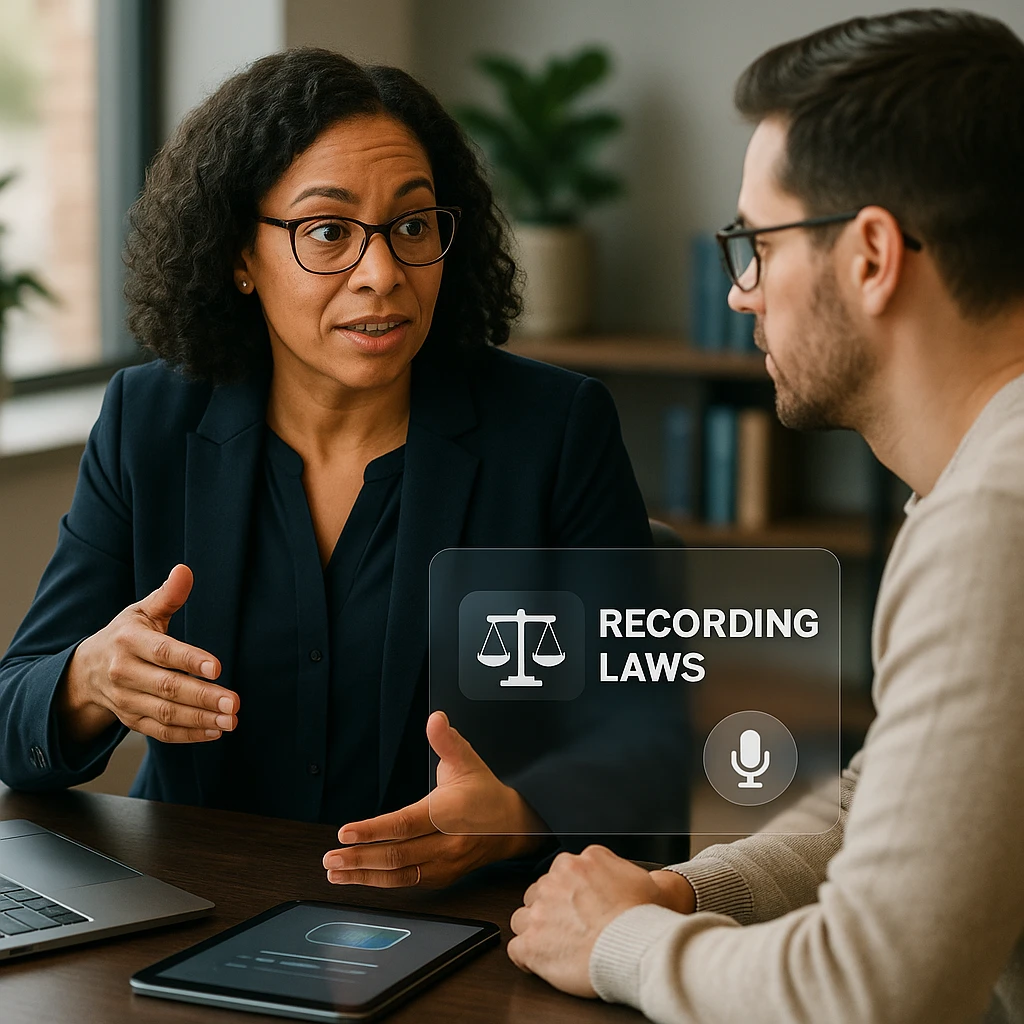
3. Send a Cease and Desist Letter
A formal letter demanding they:
- Stop recording you
- Delete existing recordings
- Refrain from distributing the content
- Acknowledge the legal violation
Consider consulting an attorney to draft this letter for maximum legal impact.
4. Consult with a Privacy Lawyer
This is the most critical step for understanding your specific rights and options. A lawyer can help you:
- Assess the strength of your case
- Determine available remedies
- Navigate state-specific laws
- Calculate potential damages
Can I Sue Someone for Recording Me Without My Permission?
Yes, in many cases you can file a civil lawsuit for unauthorized recording. Potential legal claims include:
Civil remedies:
- Invasion of privacy: Monetary damages for privacy violations
- Emotional distress: Compensation for psychological harm
- Wiretapping violations: Statutory damages (often significant)
- Injunctive relief: Court orders to stop recording/distribution
Damage awards can range from hundreds to tens of thousands of dollars, depending on:
- Severity of the violation
- Emotional harm suffered
- Distribution of the recording
- Financial losses incurred
- Intent of the recorder
Secret Recordings in Court: Admissible Evidence or Illegal Act?
The “Fruit of the Poisonous Tree” Doctrine
If a recording was obtained illegally (violating consent laws), it’s generally inadmissible as evidence in court. This legal principle means:
- Illegal recordings cannot be used: Courts typically exclude improperly obtained evidence
- Criminal charges possible: The recorder may face prosecution
- Civil liability: Separate from any criminal case
Important exception: Some courts may allow illegally obtained recordings in limited circumstances, such as proving self-defense or documenting threats.
Industry-Specific Recording Considerations
Business and Professional Settings
When conducting business meetings or professional calls:
- Always announce recording: Even in one-party consent states
- Use compliant tools: Platforms like ScreenApp provide automatic consent notifications
- Document consent: Keep records of who agreed to recording
- Review company policies: Ensure compliance with internal rules
Educational and Training Contexts
Recording lectures, training sessions, or educational content requires special consideration:
- Student privacy rights: FERPA protections in educational settings
- Consent from instructors: Required even in one-party consent states
- Institutional policies: Schools and universities often have specific rules
Healthcare and Sensitive Environments
Medical appointments and therapy sessions have heightened privacy protections:
- HIPAA considerations: Healthcare recordings involve additional federal privacy laws
- Professional licensing: Medical professionals may have specific recording restrictions
- Patient consent: Always required regardless of state laws
Expanded FAQ: Your Top Legal Questions Answered
Is it illegal to record a conversation without the other person knowing?
This depends entirely on your state’s consent laws. In one-party consent states (38 states), you can record if you’re part of the conversation. In two-party consent states (12 states), you must inform all parties and get their consent.
Can someone legally record me in a public place?
Generally yes, especially for video recording. Public spaces have reduced expectations of privacy. However, audio recording may still be subject to your state’s consent laws, and the intent behind the recording matters.
What are the rules for being recorded in my own home or on private property?
Recording in someone’s home without permission is generally illegal due to high privacy expectations. On private property, the property owner typically sets recording rules, but tenant and guest privacy rights still apply.
Are my conversations at work allowed to be recorded without my consent?
This depends on your state’s consent laws, employer policies, and the specific circumstances. Many employers have policies governing workplace recording. Always check your employee handbook and consider the privacy expectations of your workspace.
What should I do if I find out I was recorded without my permission?
Document the incident, determine if laws were violated based on your state’s consent requirements, consider sending a cease and desist letter, and consult with a privacy attorney to understand your legal options.
Can I sue someone for recording me without permission?
Yes, in many cases. You may be able to file civil lawsuits for invasion of privacy, emotional distress, or wiretapping violations. Damage awards can be significant, especially in two-party consent states.
Can a secret recording be used as evidence in court?
Generally no, if the recording violated consent laws. Courts typically exclude illegally obtained evidence under the “fruit of the poisonous tree” doctrine. However, some exceptions exist for self-defense or documenting threats.
What is the difference between “one-party” and “two-party” consent states?
One-party consent states allow recording if at least one person in the conversation (including the recorder) consents. Two-party consent states require ALL participants to agree to recording. This is the most critical legal distinction determining recording legality.
How much can you sue someone for recording you without permission?
Damage awards vary widely based on state laws, circumstances, and harm suffered. Awards can range from hundreds to tens of thousands of dollars. Some states have statutory damages for wiretapping violations, while others require proving actual damages.
Are video recording laws different from audio recording laws?
Generally, the same consent laws apply to both audio and video recording. However, some states have specific distinctions, and the expectation of privacy may differ between audio conversations and visual recordings.
Technology and Recording: Modern Considerations
Smartphone Recording Apps
With smartphones capable of recording at any moment:
- Be aware of others’ recording: Don’t assume conversations are private
- Use recording responsibly: Follow consent laws even for personal use
- Consider notification: Many apps can announce recording automatically
Smart Home Devices and Security Cameras
Modern homes often contain multiple recording devices:
- Visitor notification: Security cameras should be visible or announced
- Guest consent: Inform visitors about recording devices
- Audio vs. video: Some devices record audio, which may require additional consent
Social Media and Content Creation
When recording for social media or content creation:
- Public vs. private content: Different rules apply
- Release forms: Consider getting written consent for commercial use
- Platform policies: Social media sites have their own recording guidelines
International Considerations
Recording Laws Outside the US
If you’re traveling or working internationally:
- GDPR in Europe: Strict data protection and consent requirements
- Country-specific laws: Each nation has different recording regulations
- Cross-border calls: Multiple jurisdictions may apply
Remote Work and Global Teams
With remote work involving multiple jurisdictions:
- Strictest law applies: Follow the most restrictive jurisdiction’s rules
- Company policies: International companies often have unified recording policies
- Platform compliance: Use recording tools that handle international compliance
Best Practices for Legal Recording
For Individuals
- When in doubt, ask: Always get explicit consent when possible
- Know your state laws: Understand local one-party vs. two-party consent rules
- Respect privacy: Consider the ethical implications beyond legal requirements
- Use proper tools: Platforms like ScreenApp provide compliance features
For Businesses
- Develop clear policies: Create comprehensive recording guidelines
- Train employees: Ensure staff understand legal requirements
- Use compliant technology: Choose recording solutions with built-in consent management
- Document consent: Keep records of recording permissions
- Regular legal review: Update policies as laws change
For Content Creators
- Get written releases: Especially for commercial content
- Understand fair use: Know the limits of recording public events
- Respect privacy: Even in public, consider others’ reasonable expectations
- Follow platform rules: Each social media platform has specific policies
Protect Your Privacy, Know Your Rights
Understanding recording laws is essential in our connected world. The key principles to remember:
- Legality hinges on expectation of privacy and state consent laws
- One-party vs. two-party consent determines what’s permitted
- Public spaces generally allow recording, private spaces require consent
- You have legal remedies if recorded illegally
- When in doubt, always announce and get consent
Knowledge is your best defense. By understanding the rules of one-party and two-party consent, you can protect your own privacy and ensure that if you ever need to record a conversation, you do so legally and ethically.
Whether you’re recording important business meetings for documentation purposes or protecting yourself in difficult situations, staying informed about recording laws helps you navigate these complex legal waters with confidence.
Remember: when legal questions arise about recording, always consult with an attorney who understands your state’s specific laws and can provide guidance tailored to your situation.
